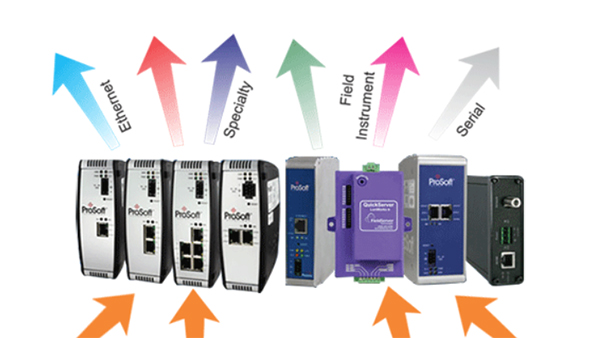Gateways

Stand-alone protocol gateways provide communication between several of the leading industrial protocols for Serial, Ethernet, EtherNet/IP, Modbus, Modbus Plus, Modbus TCP/IP, PROFIBUS, A-B Remote I/O, HART, Honeywell DE, Siemens Industrial Ethernet, Metasys, LONworks, BACnet MS/TP or BACnet IP
Gateways, also called protocol converters, can operate at any network layer. The activities of a gateway are more complex than that of the router or switch as it communicates using more than one protocol.
View our ProSoft Protocol Gateway product range - Click here.
Both the computers of Internet users and the computers that serve pages to users are host nodes, while the nodes that connect the networks in between are gateways. For example, the computers that control traffic between company networks or the computers used by internet service providers (ISPs) to connect users to the internet are gateway nodes.
In the network for an enterprise, a computer server acting as a gateway node is often also acting as a proxy server and a firewall server. A gateway is often associated with both a router, which knows where to direct a given packet of data that arrives at the gateway, and a switch, which furnishes the actual path in and out of the gateway for a given packet.
Internet Gateways
On an Internet Protocol (IP) network, clients should automatically send IP packets with a destination outside a given subnet mask to a network gateway. A subnet mask defines the IP range of a private network. For example, if a private network has a base IP address of 192.168.0.0 and has a subnet mask of 255.255.255.0, then any data going to an IP address outside of 192.168.0.X will be sent to that network's gateway. While forwarding an IP packet to another network, the gateway might or might not perform Network Address Translation.